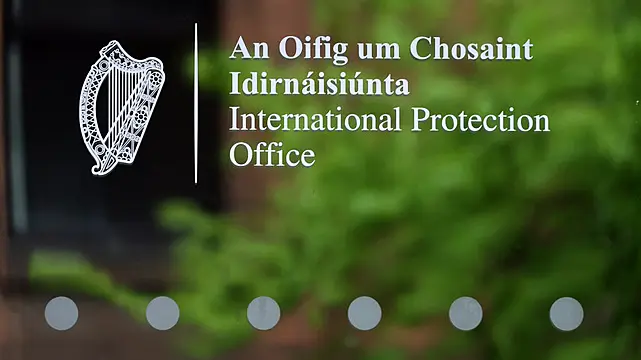There was a fourfold increase in the number of asylum-seekers appealing a decision refusing them permission to stay in Ireland last year.
The dramatic increase in cases was confirmed by the International Protection Appeals Tribunal which reported it had received over 3,500 additional appeals in 2023 compared to the previous year.
IPAS registered a total of 4,775 appeals last year compared to 1,180 in 2022 – an annual increase of over 300 per cent.
“The number of appeals being received is at a level not seen by the tribunal since it was set up in December 2016,” said IPAS registrar, George Sinclair.
The previous highest annual total of appeals received by the tribunal was 2,151 in 2018.
The latest figures show 70 per cent of all international protection appeals last year were rejected – a total of 969 cases – while asylum was granted in 28 per cent of cases and subsidiary protection in a further 2% of appeals.
Georgia was the country of origin which accounted for the most number of applicants last year.
They represented 37 per cent of all appeals accepted by IPAS during 2023, followed by South Africa and Algeria (both 10 per cent), Nigeria (nine per cent) and Zimbabwe (eight per cent).
Other countries of origin from which a large number of appeals were lodged including Botswana, Albania, Somalia, Egypt and Pakistan.
Natives of the Democratic Republic of Congo enjoyed the highest success rate in their appeals with 73 per cent having the International Protection Office decision refusing them asylum set aside followed by Zimbabwe (60 per cent) and Malawi and Pakistan (both 46 per cent).
The lowest success rate in appeals was recorded by applicants from Georgia and Algeria with only 15 per cent having the IPO decision on their status overturned.
Other countries whose applicants had low success rates on appeal included Nigeria and Albania.
IPAS chairperson, Hilkka Becker, said the tribunal had made a significant contribution to the international protection system in Ireland by making the process more efficient and ensuring its consistency “with fairness and natural justice.”
Ms Becker said the digitalisation of appeals had enabled IPAS to increase its accessibility and productivity.
She expressed delight that IPAS had been able to maintain a median processing time of under six months to adjudicate on appeals during 2023, despite the large increase in the number of cases.
The median processing time last year was 5.5 months.
While the tribunal had concluded just over 1,700 appeals last year representing an annual increase of 8%, Ms Becker said it still had a caseload of 3,908 appeals at the end of 2023.
The IPAS chairperson said it was essential that the tribunal should have staffing levels and members that was proportionately equivalent to the number of staff and decision-makers in the IPO to meet the anticipated increase in appeals in 2024.
IPAS reported that staffing levels increased last year from 37 to 59, as well as 25 additional part-time members of the tribunal.
The IPO received a total of 13,277 new applications last year which Mr Becker said represented “an unprecedented level” which would feed through into appeals before IPAS.
IPAS also noted that it continued to experience a high number of postponements of appeal hearings during 2023.
A total of €832,772 was paid in fees to the 66 part-time members of IPAS last year with barrister, John Noonan, receiving the largest single amount at €122,750.
In its latest annual report, IPAS also noted that the number of people applying for international protection within the EU in 2023 reached a seven-year high with the number of applications up 18% to 1.14 million.







